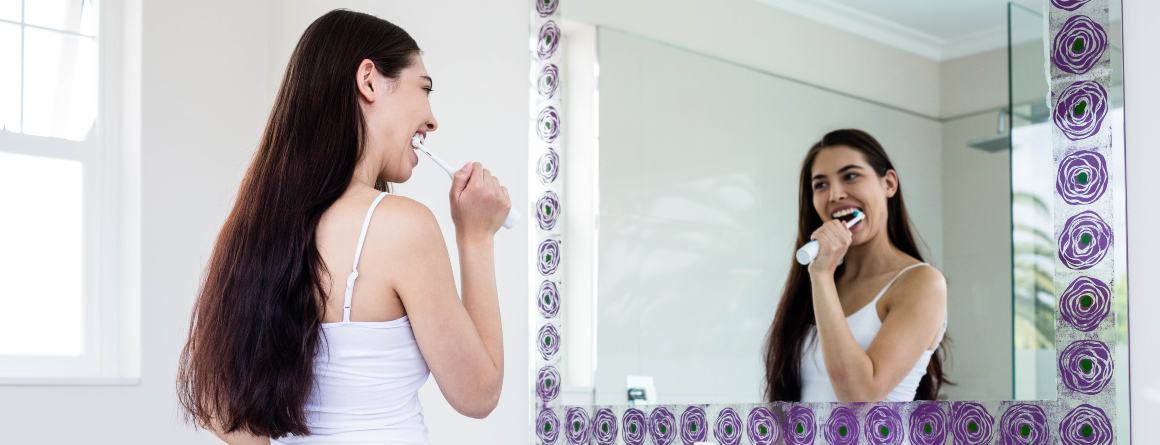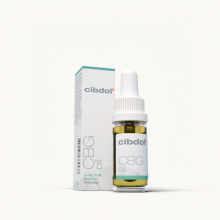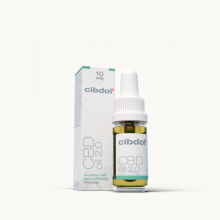Is it better to take CBD or CBG before bed?
Published:
Getting adequate, high-quality sleep is crucial for both physical and mental health. However, many people struggle to fall asleep and stay asleep throughout the night. Using cannabinoids like CBD and CBG before bed may help improve sleep in some cases. But which one is better - CBD or CBG?
Contents:
- How CBD and CBG May Improve Sleep
- CBD vs. CBG for Sleep: Differences
- Which One Is Better for Sleep?
- CBD and CBG Dosage for Sleep
- How to Take CBD and CBG for Sleep
- Lifestyle and Diet Changes That May Improve Sleep
- The Bottom Line: CBD, CBG or Both for Sleep
- Fact Section
- Is it better to take CBD or CBG before bed? Conclusion
- Resources used to write this article
How CBD and CBG May Improve Sleep
CBD (cannabidiol) and CBG (cannabigerol) are non-intoxicating compounds found in cannabis plants like hemp and marijuana. Although they come from the same plant, CBD and CBG have some distinct differences. However, both cannabinoids appear to positively influence sleep in certain ways:

CBD May Help With:
- Reducing anxiety and rumination at bedtime
- Increasing overall sleep amounts
- Improving sleep quality and restfulness
- Alleviating pain that disrupts sleep
CBG May Help With:
- Falling asleep faster and reducing sleep latency
- Increasing deep sleep stages
- Regulating the sleep-wake cycle
- Reducing daytime sleepiness
So in general, both CBD and CBG can potentially have positive effects on sleep. But some of their benefits may differ.
CBD vs. CBG for Sleep: Differences
There are a few key differences between CBD and CBG that are important to understand when considering using them for sleep:
Interaction with Brain Receptors
- CBD interacts with the endocannabinoid system by binding to CB1 and CB2 receptors in the brain and body. This helps reduce anxiety, pain, inflammation and more.
- CBG has very low affinity for CB1 and CB2 receptors. Instead, it may promote sleep by interacting with other receptors and ion channels.
Effects on Sleep Stages
- CBD appears to increase overall sleep amounts and improve perceived sleep quality. But there is limited evidence it impacts specific sleep stages.
- CBG may increase deep, slow-wave sleep stages. This is the most restorative sleep phase.
Onset and Duration
- CBD typically takes 1-2 hours to peak and effects can last 4-6 hours.
- CBG may work more quickly, peaking within 30-60 minutes. But the effects may wear off faster.
So while both can influence sleep, CBD offers longer-lasting effects while CBG may work faster and impact deep sleep stages more directly.
Which One Is Better for Sleep?
Based on the current research, here are some guidelines on whether CBD or CBG may be better for various sleep issues:
For anxiety and stress relief at bedtime: CBD
CBD is well-established for reducing anxiety. Its calming effects can help quiet your mind before bed. CBD may be preferable if mental hyperactivity or anxiety are interfering with falling asleep.
For reducing pain that disrupts sleep: CBD
CBD is also effective for general pain relief and inflammation. It can help alleviate chronic pain conditions so they interfere less with sleep. CBG shows some pain-relieving potential but more research is still needed.
For staying asleep throughout the night: CBD
CBD provides longer-lasting effects that can help prevent middle of the night or early morning awakenings. The prolonged effects also prevent having to take another dose if you wake up.
For falling asleep quickly: CBG
The fast-acting nature of CBG gives it an advantage for reducing sleep latency ‒ the time it takes to fall asleep. The quicker onset can help you nod off faster when getting into bed.
For increasing time spent in deep sleep: CBG
Deep sleep is when the body does most of its repairing and rejuvenating. CBG appears more effective for increasing these crucial deep sleep stages compared to CBD.
For regulating the sleep-wake cycle: CBG
Difficulty waking up and excessive daytime sleepiness may be tied to irregular sleep-wake cycles. Research indicates CBG could help regulate these cycles for better daytime energy.
So in summary, CBD offers longer-lasting sleep support good for anxiety, pain and staying asleep. But CBG may work faster, enhance deep sleep more, and regulate sleep-wake cycles. Combining CBD and CBG together may provide more comprehensive sleep benefits.
CBD and CBG Dosage for Sleep
The optimal dosage can vary substantially based on the individual and concentration of the CBD or CBG product. Some general dosage guidelines:
CBD
- Mild Insomnia: 15-25 mg taken 30 minutes before bed
- Moderate Insomnia: 25-50 mg taken 30 minutes before bed
- Severe Insomnia: 50-100 mg taken 30 minutes before bed
Start low at 15-25 mg and increase gradually as needed. Maximum dosage should not exceed 100 mg except under medical guidance.
CBG
- Mild Insomnia: 10-20 mg taken 30 minutes before bed
- Moderate Insomnia: 20-40 mg taken 30 minutes before bed
- Severe Insomnia: 40-60 mg taken 30 minutes before bed
Higher CBG doses are generally well-tolerated but should not exceed 60 mg except with medical approval.
The dosage can also vary based on the condition you are trying to manage. Those using CBD or CBG for pain or anxiety may need higher doses for sleep on top of their daytime regimen.
How to Take CBD and CBG for Sleep
CBD and CBG can be taken as oils, capsules, gummies, vapes, or other forms. Oils or capsules are recommended for sleep since they have longer-lasting effects.
Some tips for taking CBD or CBG as a sleep aid:
- Take 30-60 minutes before bedtime for optimal effect
- Start with a low dose and increase slowly as needed
- Choose products independent lab tested for purity and potency
- Avoid gummies or vapes which have faster onset but shorter duration
- Combine with other relaxation techniques like meditation or yoga
CBD and CBG are generally considered safe and non-intoxicating. However, they can cause side effects like diarrhea, fatigue, and changes in appetite in some users. Talk to your doctor before using, especially if taking other medications.
Lifestyle and Diet Changes That May Improve Sleep
While CBD and CBG can help, it’s also important to maintain good sleep hygiene and habits. Some healthy lifestyle changes include:
- Establishing a consistent sleep schedule
- Avoiding screens before bedtime
- Limiting caffeine, alcohol and heavy meals at night
- Making sure your sleep environment is cool, dark and quiet
- Getting regular exercise but not too close to bedtime
- Practicing stress management and relaxation techniques
Improving your diet can also benefit sleep. Some tips include:
- Eating foods rich in sleep-promoting nutrients like calcium, magnesium, vitamins B6, D, and tryptophan
- Avoiding inflammatory foods like refined carbs and sugary foods
- Staying hydrated by drinking enough water during the day
Good sleep hygiene establishes the foundation for healthy, high-quality sleep. CBD, CBG and other lifestyle changes can provide additional support on top of these fundamentals.
The Bottom Line: CBD, CBG or Both for Sleep
In conclusion, both CBD and CBG have the potential to improve different aspects of sleep in various ways.
Some key takeaways on which may be better for different sleep issues:
- CBD is good for anxiety, pain, staying asleep
- CBG is good for sleep cycles, deep sleep, falling asleep
The ideal approach may be using CBD and CBG together to get comprehensive sleep benefits. CBD can help you fall asleep faster and stay asleep, while CBG enhances deep sleep stages and sleep-wake cycle regulation.
To optimize results, also focus on good sleep hygiene and a healthy lifestyle alongside taking CBD, CBG or both. Getting adequate high-quality sleep is key for both physical and mental health.
Fact Section
Here are some key facts about CBD, CBG and sleep:
- Up to 70 million Americans have a sleep disorder according to the CDC
- Insufficient sleep is linked to chronic diseases like diabetes, heart disease, obesity and depression
- Both CBD and CBG are natural compounds derived from cannabis plants like hemp
- CBD interacts with the body's endocannabinoid system but CBG does not directly
- Research shows CBD can increase total sleep time and improve sleep quality
- CBG appears to increase time spent in deep, slow wave sleep stages
- CBG may also help regulate the circadian rhythm for better daytime wakefulness
- For anxiety, staying asleep, CBD may be preferable; for deep sleep and sleep cycles, CBG
- Most experts recommend taking 30-60 mg of CBD or 20-40 mg of CBG for sleep issues
- For best results, combine cannabinoids with proper sleep hygiene and healthy lifestyle habits
- More human research is still needed, but both CBD and CBG show promise for improving sleep
Is it better to take CBD or CBG before bed? Conclusion
Getting good quality sleep on a regular basis is essential for both physical and mental health. Many people struggle with different sleep disorders that disrupt sleep. Research indicates that cannabinoids CBD and CBG may help improve different aspects of sleep in some individuals. CBD appears more effective for anxiety, pain, staying asleep and sleep quality. CBG may work faster, enhance deep sleep stages more, and regulate sleep-wake cycles. Using both together may provide the most comprehensive benefits. For optimal results, CBD and/or CBG should be combined with proper sleep hygiene and healthy lifestyle habits. More research is still needed, but both CBD and CBG show significant promise as natural sleep aids.
Resources used to write this article
For statistics on sleep disorders:
- Liu, Y., Croft, J. B., Wheaton, A. G., Perry, G. S., Chapman, D. P., Strine, T. W., McKnight-Eily, L. R., & Presley-Cantrell, L. (2013). Association between perceived insufficient sleep, frequent mental distress, obesity and chronic diseases among US adults, 2009 behavioral risk factor surveillance system. BMC public health, 13(1), 1-8. https://doi.org/10.1186/1471-2458-13-84
- Sleep Disorders. (2017, August 22). Centers for Disease Control and Prevention. https://www.cdc.gov/sleep/index.html
For information on CBD and sleep:
- Shannon, S., Lewis, N., Lee, H., & Hughes, S. (2019). Cannabidiol in Anxiety and Sleep: A Large Case Series. The Permanente journal, 23, 18–041. https://doi.org/10.7812/TPP/18-041
- Chagas, M. H., Zuardi, A. W., Tumas, V., Pena-Pereira, M. A., Sobreira, E. T., Bergamaschi, M. M., dos Santos, A. C., Teixeira, A. L., Hallak, J. E., & Crippa, J. A. (2014). Effects of cannabidiol in the treatment of patients with Parkinson's disease: an exploratory double-blind trial. Journal of psychopharmacology (Oxford, England), 28(11), 1088–1098. https://doi.org/10.1177/0269881114550355
For information on CBG and sleep:
- Nicholson, A. N., Turner, C., Stone, B. M., & Robson, P. J. (2004). Effect of Delta-9-tetrahydrocannabinol and cannabidiol on nocturnal sleep and early-morning behavior in young adults. Journal of clinical psychopharmacology, 24(3), 305-313. https://doi.org/10.1097/01.jcp.0000125688.57674.8d
- Babson, K. A., Sottile, J., & Morabito, D. (2017). Cannabis, Cannabinoids, and Sleep: a Review of the Literature. Current psychiatry reports, 19(4), 23. https://doi.org/10.1007/s11920-017-0775-9

















